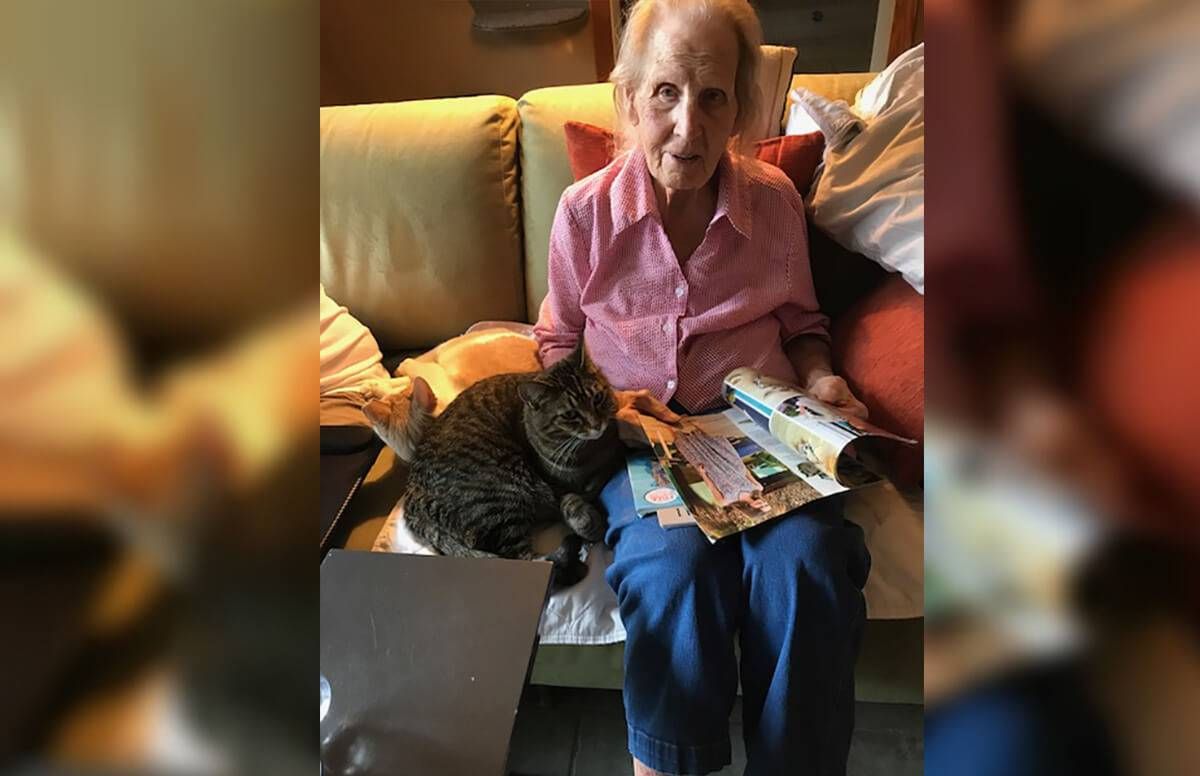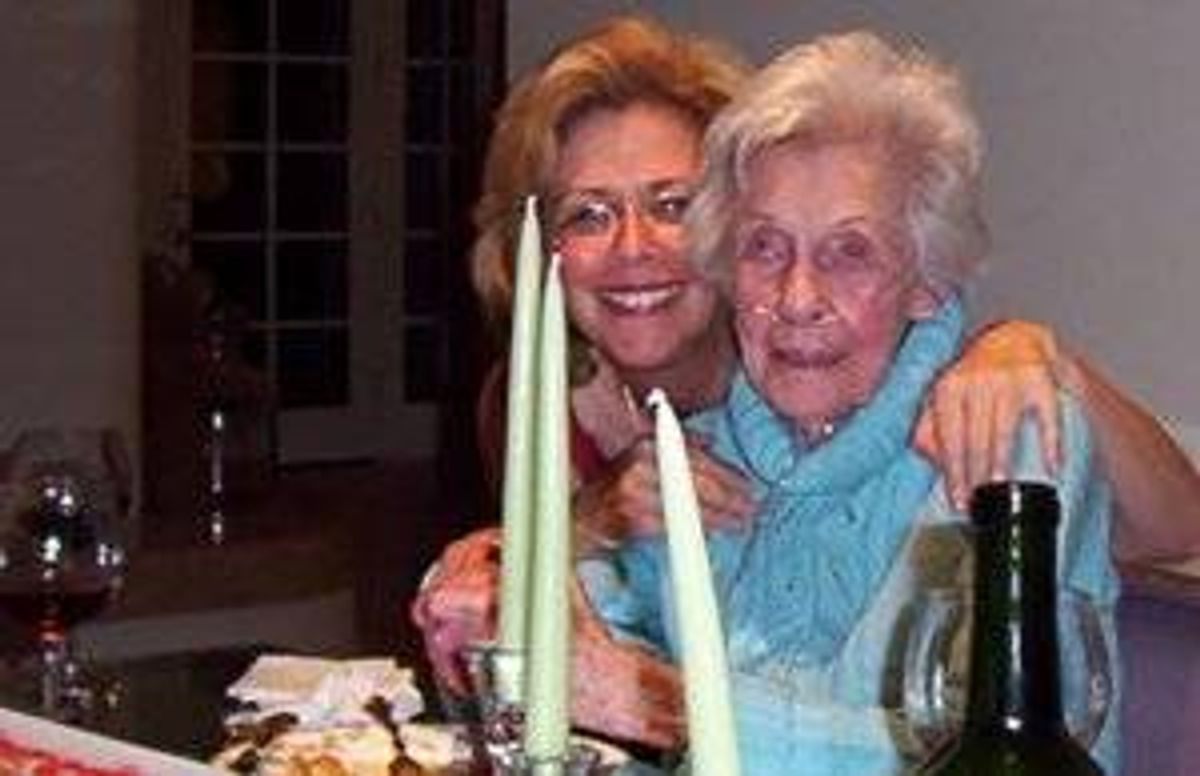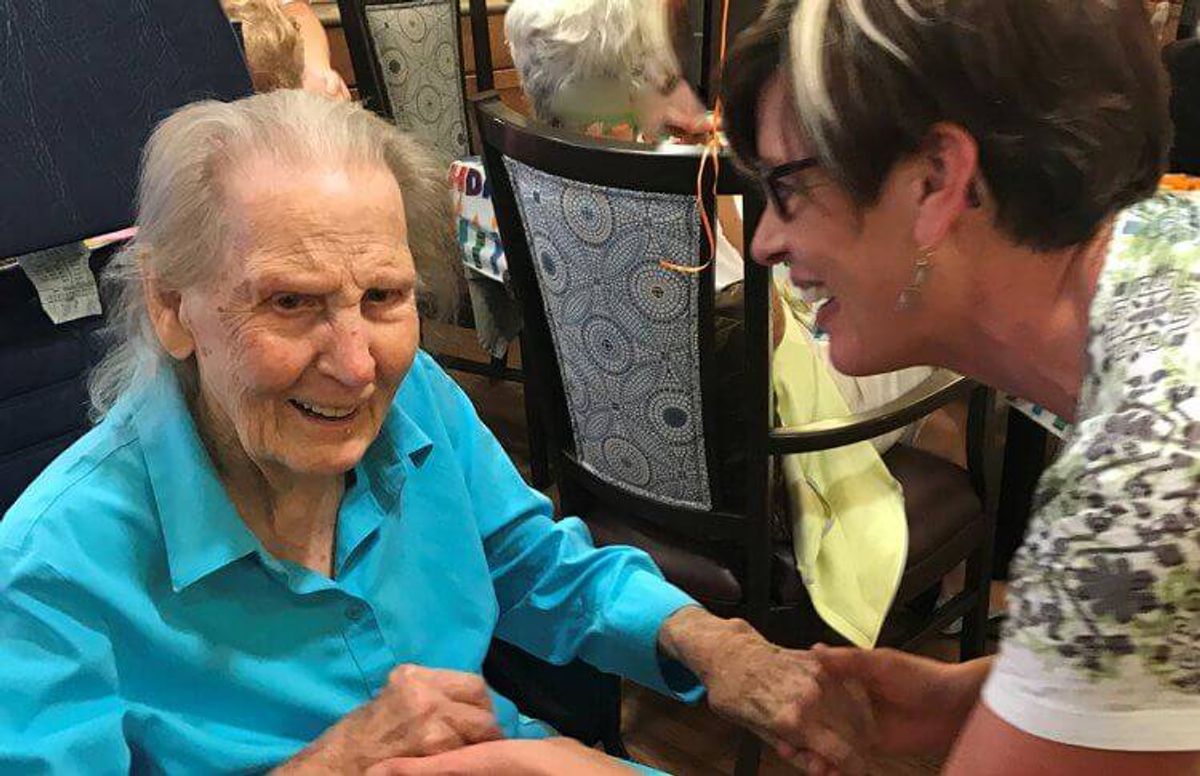Your Family Caregiving Stories of Hardship and Hope
Readers told us what it's like to be a family caregiver
It uses up every ounce of your energy, keeps you awake at night, strains your finances and family relationships, and compromises your health. Or it brings you closer to loved ones, creates a fierce sense of purpose in your life and makes you realize what’s really important.

Or it does all of those things.
I’m talking about caregiving for a loved one. A couple dozen of our readers responded to this Next Avenue Facebook question last week: “Every caregiver has a story: What’s yours?” Some of the responses were brief; others went on for pages. Some were uplifting; some heartbreaking.
We wanted to share a few of those stories (some of you gave us permission to use your names) in the hope that if you're a family caregiver, you will find inspiration, strength and the assurance that you are not alone on this path.
Neglecting Her Own Health
"My husband was diagnosed with primary progressive multiple sclerosis (MS) one year after we were married. We've been married for 29 years. The progression of his disease was fast, and he has needed a caregiver for the past 20 years....
Twenty-plus years of caregiving, without any break, is difficult. I would not wish it on anyone. But who ever asks for this? It just happens randomly. I have neglected my own health and am very heavy, and know that I should do something about it, so I recently joined Weight Watchers online." —Roya Bromell, St. Louis

Healing Old Wounds
"Before a life-threatening illness necessitated my mother coming to live with me, I was certain we had healed all our prior issues and had a great relationship. When she moved in, not only did all those old issues arrive with her, but during the years together we added more than a few that needed to be worked through.
My mother lived with me six years, and they were years filled with not only conflict and challenges as her health continued to decline, but also great opportunities to heal everything that stood between us. I learned how difficult it is to be a caretaker — the challenges and emotions can become overwhelming, stressing us mentally and physically. The strain was so immense that there were times I wasn't sure I would outlive her….
The thing we did best was to keep communicating with each other. Because of that, we were able to heal our relationship so that by the end of her life, the only thing between us was love." —Virginia A. Simpson, El Dorado Hills, Calif.
Feeling Trapped
"I moved in with my mother at the beginning of the Great Recession in what was supposed to be a temporary situation until I found a job. Nine years later, I'm still there and only working part-time. My mother is 91 and needs help.
To make matters worse, because of the situation nine years ago, my mother not only didn't charge me room and board, she began giving me a stipend to help out. Now the stipend is for all the things I do for her. She should go into assisted living, but she wants to age in place. My siblings know I am being given money, so they consider this my job and [they believe] that I should keep looking for a full-time job....
I am overwhelmed, isolated and extremely depressed. My siblings seem oblivious. Out of three, two don't like our mother and won't help. It's been a nightmare. Never, ever get yourself bound up financially with no way out." —Anonymous
Educating the Doctors
"My caregiving for my mom with Alzheimer’s ended a year and a half ago. But for 12-plus years, I lived it day in and day out.… I honestly feel I could have given these geriatric doctors a few good lessons on Alzheimer’s. I was blessed in the end because when my mom passed, she knew my name, she knew I was her daughter and she called me her 'everything.' What more could I have asked for!?" — Maryann Harris
Lessons for Her Own Life
"I come to caregiving from a personal and professional perspective...I have helped take care of my mother and my father and helped two friends to die with dignity…. My dad became a caregiver for his siblings at a very young age because his father was emotionally and physically abusive. In adulthood, he took care of his mom and dad in spite of that. The lesson I learned from my parents was the importance of helping family and friends who were ill and needed help even if the relationship was not always based on love." — Iris Waichler, Chicago
Seeking Answers
"I care for my 83-year-old husband. I did not know he had dementia; this came on slowly over a period of years. I knew he acted strange and sometimes would do things he should not do. He was acting out so bad I became scared. I thought I was losing my mind, but did not know how to get us help. All I was advised to do was put him in a home, which I do not want to do.
I finally called the V.A. helpline. Finally got some help…. I can care for him now without fear, and now that I know what to expect, it is so much easier to deal with. It sure helps to be able to talk to other caregivers." — Anonymous
Dismissed by Family
"My mother moved in with me after she could no longer care for herself because of crippling rheumatoid arthritis. She was 79 at the time. I was 54, living by myself and with a highly responsible position in higher education. I have five brothers. We all live in the same state....
I learned how incredibly hard caregiving is. Caring for my mom turned my world upside down, primarily because of lack of support from by boss and most of my siblings…. Fortunately, I was able to continue working long enough to retire with a pension, but I have been ill and mostly homebound for the last 10 years.… The hard lesson I learned was how little four of my five brothers cared about my mom and me." —Anonymous
Finding a Community of Caregiving
"My caregiving began in my 20s, when my 55-year-old mom had a massive bleed stroke, followed by several neurosurgeries. It was the early 1970s and there was no caregiver support; I had to learn just by doing. My older brothers and I all had our turn of caregiving for her over the following 30 years. Then, 20 years ago, my 39-year-old husband had a stroke, and I have been caregiving to him ever since (even though I'm nearing 70 and am a brain tumor survivor myself).
Even before there was Internet as we now know it, my husband and I helped start up online support groups for stroke, with members all over the world, to share this experience and learn from one another. Some of my most treasured friends in this world are people I've never even met in person, but we have shared some of the hardest challenges of our lives as long-term caregivers to spouses, parents and children who have had strokes. It doesn't really get any easier, but it surely helps to have the comfort, wisdom and love of others going through the same thing." —Suzanne Rampton, Citrus Heights, Calif.
Counting Blessings
"My father's Alzheimer's gradually took everything from him — except his spirit. He never stopped being 'Dad.' He never stopped loving, despite his inability to recognize his loved ones. The day he looked me in the eye and said, 'I know what my name is, but I don't know who I am,' I knew how deeply he still trusted me….
One of the greatest blessings of my life has been to be fully present with my parents as they passed from this life into the next, holding their hands and letting them go." —Naomi Cochran, Hayward, Wis.
A Peaceful Goodbye
"My fondest childhood memories of Momma are of evenings spent in the quiet of our living room in Daphne, Alabama. I would rest my head in her lap while she read to me from beautifully illustrated story books … [Near the end of her life], we moved her from Alabama to North Carolina so [my wife] Cindy and I could oversee her care [at a memory care residence].
Cindy and I brought her to our house for a few hours each weekend…. She came to tolerate our cats and was entertained by their unpredictable moves through the pet door and across the various walkways in our den. I texted photos to my siblings of Momma with one cat who had taken quite a liking to her and always managed to get close to her on the couch.
I was bestowed a great blessing to have the time with Mom that I did…. The memories created at the end of her life are just as special to me as the ones created at the beginning of my life back in our Alabama living room." — Elizabeth Pruett, Charlotte, N.C.



